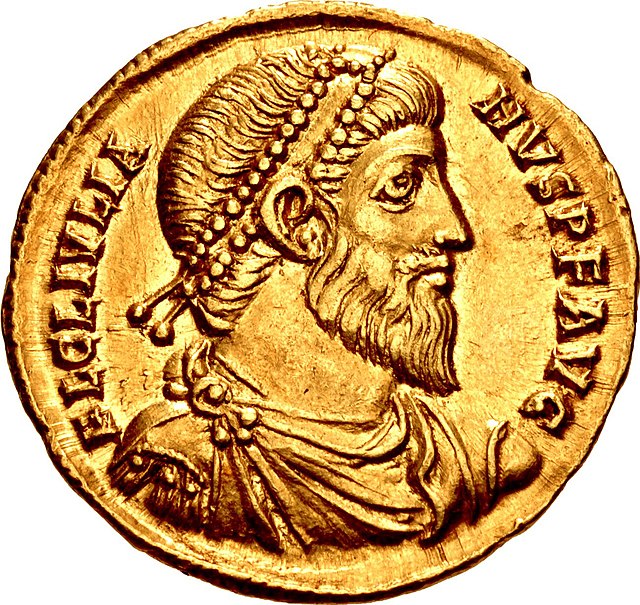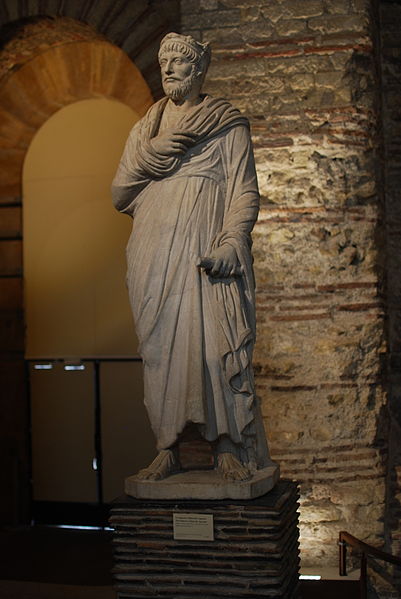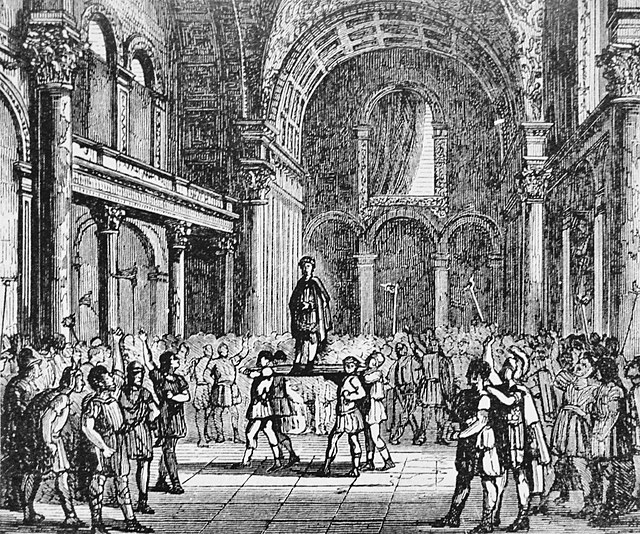Julian was the Caesar of the West from 355 to 360 and Roman emperor from 361 to 363, as well as a notable philosopher and author in Greek. His rejection of Christianity, and his promotion of Neoplatonic Hellenism in its place, caused him to be remembered as Julian the Apostate in Christian tradition. He is sometimes referred to as Julian the Philosopher.
Julian in a solidus minted at Antioch. Legend: Fl Cl Iulianus p f aug.
Statue at the Musée de Cluny formerly identified as Julian.
19th century depiction of Julian being proclaimed emperor in Paris (fancifully located in the Thermes de Cluny, then thought to have been the Imperial Palace), standing on a shield in the Frankish manner, in February 360.
Solidus of Julian issued at Ravenna in 361, during his war with Constantius. The reverse reads VIRTUS EXERC(ITUS) GALL(ICARUM), 'virtue of the Gallic army', celebrating Julian's legions from Gaul which acclaimed him as emperor.
Caesar is a title of imperial character. It derives from the cognomen of the Roman dictator Julius Caesar. The change from being a surname to a title used by the Roman emperors can be traced to AD 68, following the fall of the Julio-Claudian dynasty. When used on its own, the title denoted heirs apparent, which would later adopt the title Augustus on accession. The title remained an essential part of the style of the emperors, and became the word for "emperor" in some languages, such as German (kaiser) and Russian (tsar).
Sculpture depiction of Julius Caesar
The Roman emperor Constantine the Great, mosaic in Hagia Sophia, Constantinople
Mehmed II and Ecumenical Patriarch of Constantinople Gennadios.







